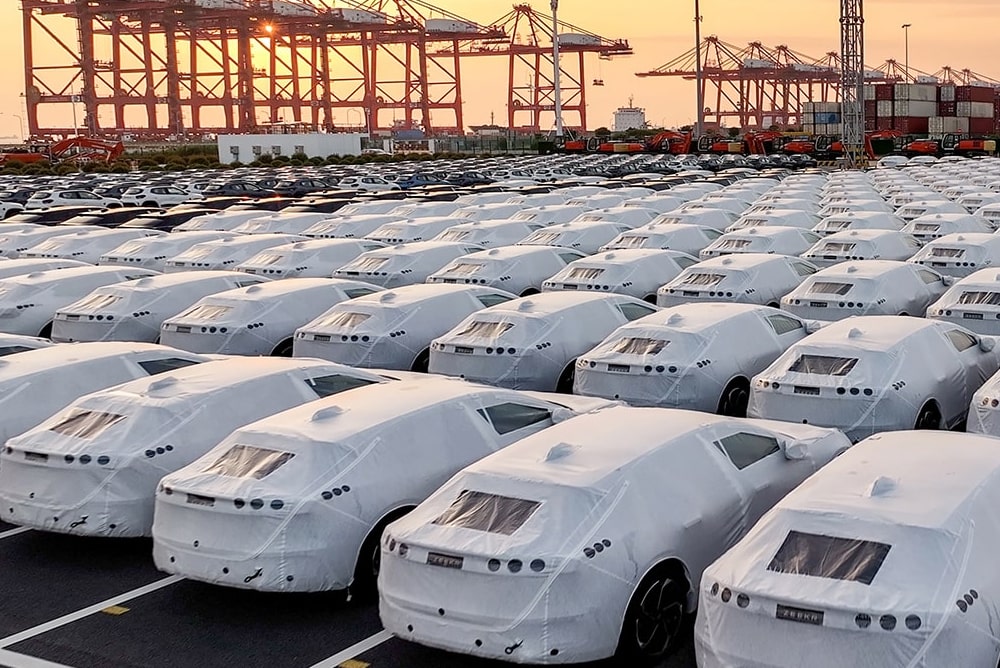Scholz proposes equally high tariffs for EVs from China and the EU
Scholz’s deal, as the German newspaper Handelsblatt writes, citing government and EU circles, involves both sides imposing the same high tariffs on car imports. There is talk of imposing a uniform tariff of 15 per cent on Chinese and European car exports. The exact amount could still change. The EU’s plans for staggered tariffs on Chinese electric cars, presented in mid-June, would be dropped.
The EU Commission considers the Chancellor’s plan unsuitable and does not see it as an option. It says that dealing with China is not about harmonising tariffs, but about creating fair competitive conditions and offsetting Chinese subsidies. The special tariffs proposed by the EU will come into force provisionally on 4 July. The EU and China will continue talks until 5 November, and tariffs will not be imposed until then. In November, EU member states must confirm the decision. If they accept the EU proposal, tariffs will be levied retroactively to 4 July.
Despite the Commission’s negative reaction, Handelsblatt writes that the Chancellor’s initiative is politically significant. “Should other countries join the Germans, the EU Commission could come under so much pressure that the authority would have to give in.”
Scholz’s proposal would only increase tariffs slightly
Currently, carmakers have to pay a ten per cent duty when importing an electric car from China to the EU – regardless of whether a Chinese manufacturer or a European company makes it. A BMW iX3 built in China is treated in the same way as an MG4 or Nio ET5, to name just a few examples. The EU currently plans to assess the special tariffs according to the amount of subsidies a manufacturer gets from the Chinese government – i.e. the alleged competitive advantage. For a heavily subsidised manufacturer such as SAIC (with the MG brand), the special duty will be 38.1 per cent, and for BYD, only 17.4 per cent. As the special duties are levied in addition to the ten per cent already in force, this results in import duties of 27.4 to 48.1 per cent.
Scholz’s proposal to charge a flat rate of 15 per cent import duty in both directions would cause a minor increase in the duty for vehicles manufactured in China. However, nothing would change for electric cars manufactured in Europe and sold in China: China already charges 15 per cent for car imports.
Showdown between Scholz and von der Leyen?
With the possibility that other countries will follow the Chancellor’s proposal, the process is somewhat explosive. The initiative for the subsidy-dependent tariffs came from the EU Commission under Ursula von der Leyen (CDU). It would thus be a showdown between Scholz and von der Leyen if the Chancellor were to win a majority with his initiative – and the EU Commission’s tariffs were not to come into force. So far, however, criticism of the manufacturer-specific tariffs has mainly come from Germany. “I am not satisfied with the results of the European Union’s trade policy. Something has to change dramatically,” Scholz said on Wednesday during his government statement in the German Bundestag.
According to the report, Brussels describes the German approach with across-the-board and equally high tariffs for both sides as “naive.” The EU refers to its anti-dumping investigation, which showed how strongly the Chinese EV industry is being subsidised. According to the Handelsblatt, EU insiders also have legal doubts about Scholz’s plan based on the known results. However, the report also makes it clear that the level of the planned tariffs is not entirely uncontroversial, even in Brussels.
handelsblatt.com (in German)





2 Comments